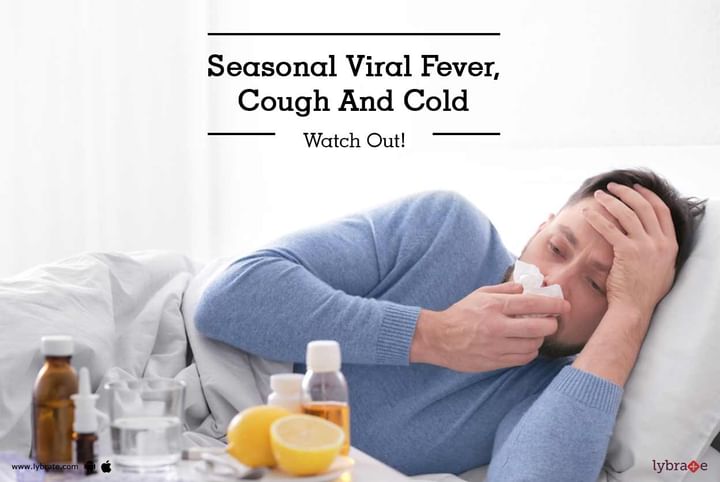Seasonal Viral Fever, Cough And Cold - Watch Out!
Viral fever is a cumulative term which refers to a group of viral infections and is characterised by high fever, headaches, body ache, burning in the eyes, nausea and vomiting. It usually comes in package with severe cough and cold.
It actually is not an ailment but is the result of an underlying cause, which is viral infection. This infection can occur in any part of the body such as lungs, intestines, air passage, etc., and the high fever is the sign of immune system of the body fighting against the invasion of viruses.
How does viral fever, cough and cold occur?
Just like its name, 'viral fever' travels from one person to another. Whenever an infected person yawns, coughs, sneezes or even talks, he/she releases tiny fluids in the environment, putting the nearby people at risk of suffering from the infection.
The infection may occur due to mosquito, tick bites or by coming in contact with the infected person’s blood or semen.
Symptoms:
Symptoms:The symptoms of viral fever include:
- High fever
- Fatigue
- Headache
- Severe weakness
- Muscle and body ache
- Painful tonsils
- Sore throat
- Burning sensation in eyes
- Skin rashes
- Diarrhea
- Nausea
- Vomiting
- Running nose
- Cough
Diagnosis
As the symptoms of the viral fever have too much resemblance to other diseases like dengue, malaria, chikungunya, typhoid, etc., it is better to consult a doctor before taking any random antibiotic. The doctors often recommend blood test to be sure about your disease before beginning with the treatment.
Treatment
As there are no antibiotics for viral fever, the doctors prefer prescribing fever-reducing medicines. If a doctor is prescribing antibiotics, then it is to ensure that you do not get infected with any other viruses while being sick.
It is always very important to complete the full course of antibiotics recommended by the doctor. If you stop taking the medication midway, your body will create antibiotic-resistant bacteria and the same medicines will become ineffective.
How can we prevent viral fever?
Keeping ourselves and our daily activities clean and maintaining appropriate distance from infected people is the best prevention for the disease. Some prevention measures are as follows:
- Wash hands properly before eating
- Avoid eating outside in open areas
- Always cover your mouth while coughing, sneezing or yawning
- Drink as much water as you can
The doctors, however, do not give any dietary restrictions, but it is always good to follow a balanced diet and completing the course of prescribed medicines prescribed by the doctor.



+1.svg)
